Press calls for reforms following licence fee vote
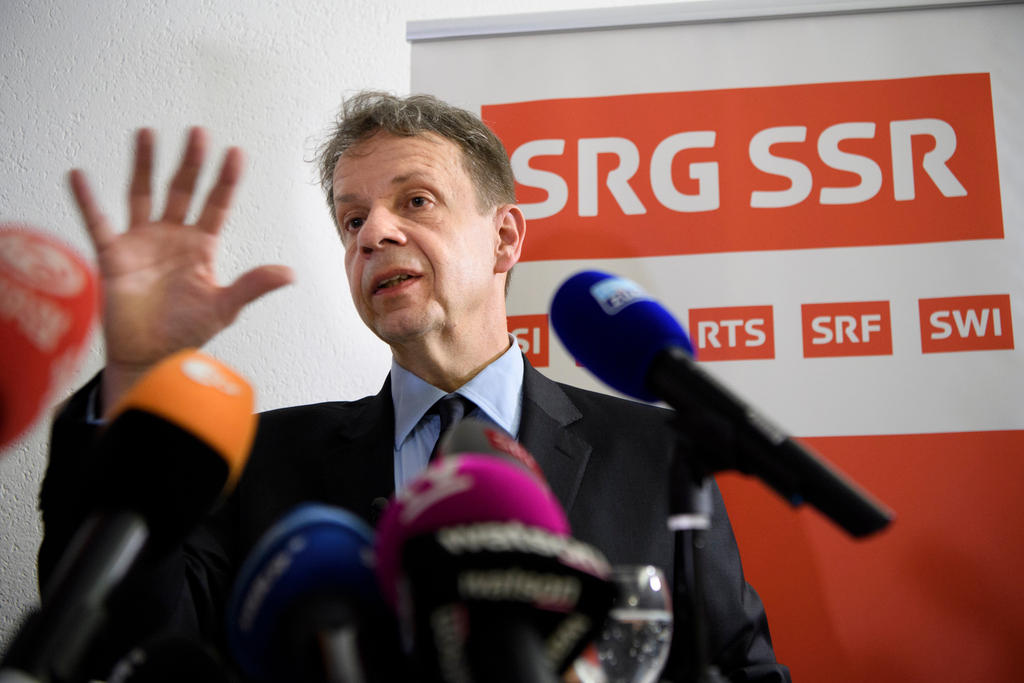
Commentators in the Swiss press have interpreted the overwhelming rejection (71.6%) of the ‘No Billag’ initiative on Sunday as a strong sign of support for a publicly funded Swiss TV and radio service. Nevertheless, they believe that the Swiss Broadcasting Corporation (SBC) must downsize, and opinions vary widely as to how this could be achieved.
Neue Zürcher Zeitung
The Zurich-based newspaper argued that the “social foundation” for an annual licence fee for Swiss households – which currently sits at CHF451.10 ($482) – is “crumbling”, and that the corporation must therefore consider whether funds should come from the federal budget going forward. “The vote marks the end of an era for the [SBC]; they can no longer finance such a large variety of programs with publicly funded fees. The framework conditions for public broadcasting must be determined by politics,” the paper said.
Tages-Anzeiger
The Tages-Anzeiger, another Zurich-based German-language paper, noted that Sunday’s vote illustrates how the Swiss model of direct democracy makes it possible for citizens to incite change on issues “neglected” by the government and parliament. “Politicians failed to constrict the SBC, and now the company itself has come to realise that it’s time to limit its scope,” the paper said. “The SBC has been pursuing an aggressive expansion policy at the expense of the private media industry for years, and has become a giant corporation with an enormous number of channels and a controversial advertising strategy. Finally, the company wants to become more modest.”
Basler Zeitung
It’s not over yet – this was the main message of the Basel-based paper, which foresees that “the next initiative challenging the SBC’s funding will be here soon” if key reforms are not implemented. “Despite the no-vote, the fundamental questions are not yet off the table. Public service broadcasting and its financing structure must be defined more clearly. The SBC should become a kind of news agency for audio-visual content which can be freely accessed by individuals,” the German-language paper said.
Le Temps
The French-language newspaper called the vote result “overwhelming”, adding that “the challenge is now to find out what exactly the Swiss meant by this vote, and how politicians and the SBC itself intend to proceed”. The paper speculated that whilst the SBC has promised to accept criticism and move forward accordingly, a fundamental reform of the Swiss media system is still a vision of the distant future, noting that it will be interesting to see how things develop once the debate on a different distribution of fees begins.
La Liberté
The current media landscape deserves a thorough debate, wrote the French-language newspaper based in Fribourg. Like the SBC, newspapers also need to recognise the crucial role they play in public service broadcasting, the paper said. “This victory doesn’t belong to the SBC, but to the public, who understood that a purely commercial television doesn’t guarantee quality,” it added.
Tribune de Genève
Geneva’s French-language newspaper called Sunday’s vote “a watershed moment”. It added that although citizens did not abolish the SBC, they also don’t want to preserve it in its present form, and that there is a “gigantic task ahead” for the broadcaster. The paper added that the variety of Swiss media offerings must no longer be ignored. The private press contributes just as much to the diversity of opinion and to a public debate as the SBC does, it said.
La Regione
The newspaper in the Italian-speaking part of the country summed it up thus: “The SBC has been saved, but its future is a big question mark.” The paper said that it’s clear now that the broadcaster will be cheaper, smaller and less “greedy”— the latter in reference to the lion’s share of funding it receives from the licence fee in comparison to private TV and radio stations. The paper echoed other Swiss media when it added that the debate on the future of the public broadcaster, and more generally on the public service provided by the Swiss media, has just begun.
The debate over public broadcasting in Switzerland also sparked media commentary in neighbouring Italy and Germany.
Italy’s Corriere della SeraExternal link saw the strong support for the public broadcasting fee as important, especially for Italy, where the Democratic Party has called for the abolition of public broadcaster RAI. “However, this is not the first time that the Swiss electorate has come up with a surprise,” the Milan-based paper added. “In the 1990s, the Swiss people approved the introduction of a special tax to finance the high-speed rail network and the construction of the Gotthard tunnel, Europe’s longest. It was even completed ahead of schedule.”
In the German capital, Berlin, the paper Cicero tried to make sense of the victory for public broadcasting. “There are many things in a functioning society that we as citizens pay for without necessarily making use of: The childless pay for schools, motorists pay for the railways, and people who don’t care about football pay for sports promotion. There is general consensus that communities need solidarity in addition to self-responsibility.” Cicero added that regardless of Swiss voters’ political leanings, it was clear that “no one was willing to sacrifice national radio and television on the altar of the free market economy”.
The Stuttgarter Nachrichten in southern Germany highlighted that Germans also complain about the licence fee they have to pay and the kind of content it finances, but that “citizens haven’t yet distanced themselves from the basic idea of public broadcasting.” The paper added that, “Also here, publishers are calling for changes in the business practices of the [public broadcaster], but haven’t dared demand its complete dismantling. That’s why it’s worth taking a second look at what happened in Switzerland.” It remarked that while the opponents of public broadcasting may have lost the fight, they found enough support to continue to rattle the SBC. The Süddeutsche Zeitung’s commentary followed a similar vein. It applauded the decision by the SBC on Sunday to announce budget cuts and provide more money for current affairs programming. “German broadcasters should learn from that. Broadcasting in Germany is in need of a new social contract. Switzerland already has one.”

In compliance with the JTI standards
More: SWI swissinfo.ch certified by the Journalism Trust Initiative
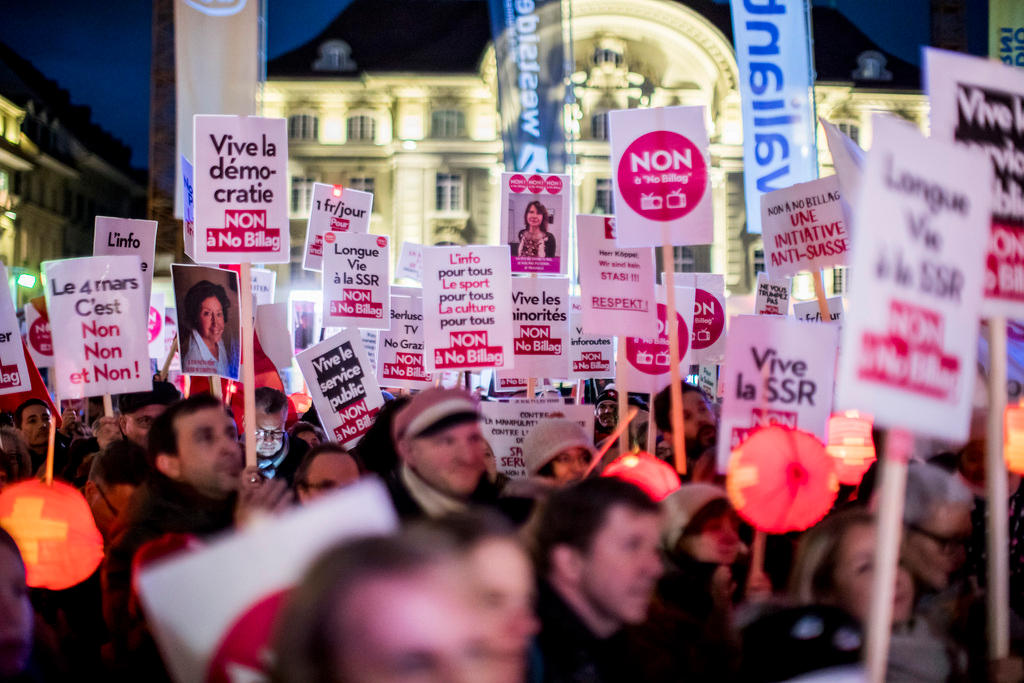

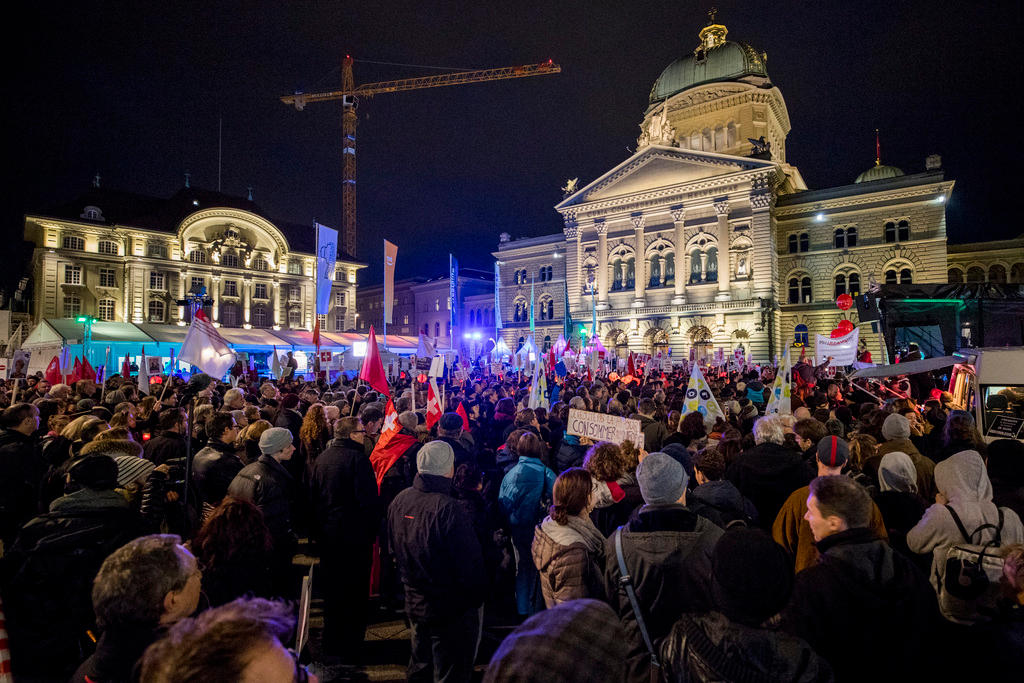
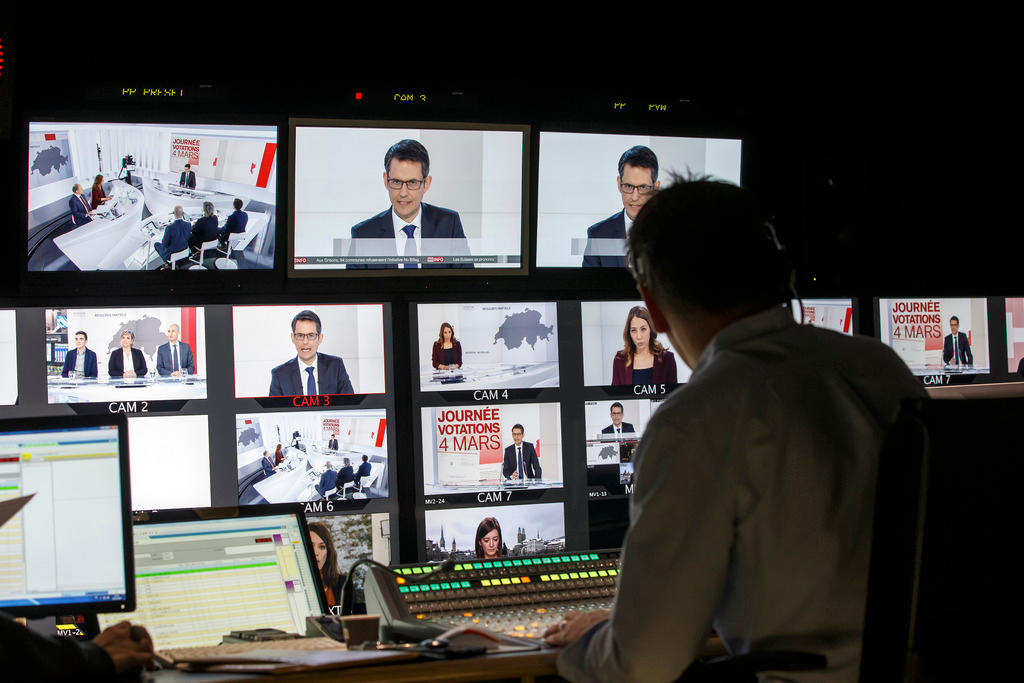
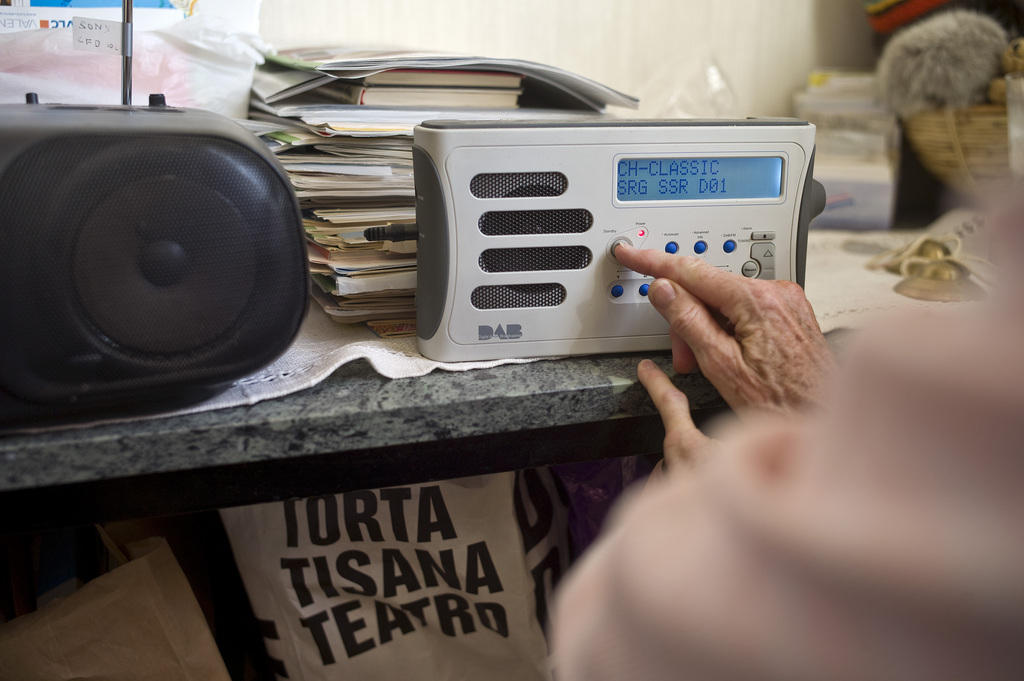
You can find an overview of ongoing debates with our journalists here. Please join us!
If you want to start a conversation about a topic raised in this article or want to report factual errors, email us at english@swissinfo.ch.